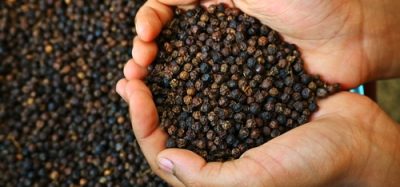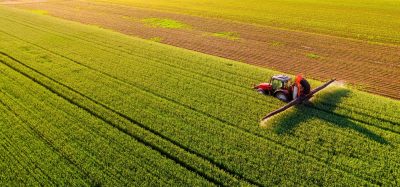New lab to explore food production in space launches into orbit
- Like
- Digg
- Del
- Tumblr
- VKontakte
- Buffer
- Love This
- Odnoklassniki
- Meneame
- Blogger
- Amazon
- Yahoo Mail
- Gmail
- AOL
- Newsvine
- HackerNews
- Evernote
- MySpace
- Mail.ru
- Viadeo
- Line
- Comments
- Yummly
- SMS
- Viber
- Telegram
- Subscribe
- Skype
- Facebook Messenger
- Kakao
- LiveJournal
- Yammer
- Edgar
- Fintel
- Mix
- Instapaper
- Copy Link
Posted: 22 April 2025 | New Food | No comments yet
A new laboratory launched into space this week could hold the key to feeding astronauts on long-term missions to the Moon, Mars and beyond.


Imperial College London scientists have successfully sent a miniature lab containing engineered microbes into Earth’s orbit to explore how they can produce essential resources like food, pharmaceuticals and even bioplastics in the unique conditions of space.
The project, led by Dr Rodrigo Ledesma-Amaro from Imperial’s Department of Bioengineering, aims to develop a more sustainable and cost-effective approach to feeding astronauts, which traditionally relies on expensive and bulky food supplies.
Launched aboard Europe’s first commercial returnable spacecraft, Phoenix, via SpaceX on 21 April, the miniature lab will test whether yeast can be engineered to produce vital food and other materials in space using precision fermentation.
Dr Ledesma-Amaro said:
We’re excited that this project makes use of academic and industry expertise in physics, engineering, biotech and space science – converging on this challenge.
If just a handful of cultivated cells could provide all our food, pharmaceuticals, fuels, and bioplastics using freely available resources, that would bring the future closer.”
Tackling the food production conundrum
This isn’t the only project in recent years tackling the conundrum of feeding astronauts during long-duration space missions. Since 2017, NASA and DLR have been testing a self-sustaining greenhouse at the Neumayer III research station in Antarctica since 2017. The extreme conditions there closely mimic those of space and are helping to develop efficient ways to grow fresh produce for long-duration space missions.
Currently, providing each astronaut with enough food for a mission is estimated to cost around £20,000 per day, largely due to the need to transport large quantities of food and water. By harnessing microbes to produce food on-site through fermentation, the need for heavy food supplies could be dramatically reduced.
The miniature lab will study the behaviour of these engineered microbes in microgravity, providing key insights into how they might be used to produce food, medicine, and other essentials during deep-space missions. Once the experiment is completed, the microbes will return to Earth for analysis, shedding light on how space conditions affect their growth and production.
Aqeel Shamsul, CEO of Frontier Space, the company responsible for the lab’s technology, described the mission as a milestone in space research. He said:
Our SpaceLab Mark 1, ‘lab-in-a-box’ technology enables researchers to conduct sophisticated experiments in microgravity without the traditional barriers to space-based research.”
The results of this experiment could pave the way for new approaches to food production on Earth as well, potentially offering a more sustainable, efficient and localised method for creating proteins and other materials using minimal resources.
Related topics
Equipment, Lab techniques, Sustainability, Technology & Innovation









